Hyundai Staria vs Kia Carnival: What's the best people mover?
Need big boot space, multiple child restraints and walk-in access for the extended family? A people mover beats a seven-seat SUV hands-down. But which one is better?
Let’s think about why you want a vehicle like this, a people mover, and to make that simple, here is a seven point list that will help you decide which one to buy.
There are now two full-size SUV-eating people movers on sale which offer an abundance of cargo room and a multitude of passenger transport options for the variety of industry-grade procreator mums and dads out there.
Let me introduce the new Hyundai Staria: learn about it in detail here >> and you can get my full Kia Carnival Love/Hate report here >>.
Now that you’re all caught up, this report is brought to you by a multi-pronged question from John Hark:
Firstly, when considering buying a vehicle such as this, or any other, don’t be unbolting the seats. They’re really heavy, they’re hard to lift in an out, you’ll damage the car’s interior and they’re not designed to be bolted in and out repeatedly. You only need to cross-thread one bolt.
You need to ask yourself if a genuine van would be better, such as the proper Staria van when it arrives. The only thing you won’t get with the Staria van is all-wheel drive, which is fairly inconsequential because you primarily don’t need it with a cargo-carrying utility vehicle like a van. You just don’t.
Both Kia Carnival and Hyundai Staria are going to drive quite nicely, especially at 8/10 on normal roads at normal speeds.
You can learn more about how these vehicles are tuned for Australian roads in my live discussion with Kia Australia’s head engineer Graeme Gambold here: Interview: Vehicle dynamics and suspension tech deep-dive >>
But to compare these vehicles you don’t need to compare their driving/handling characteristics because they’re not meant to be driven in a hard manner.
If, on the other hand, you are properly intent on taking the kids camping, for example, and you head down some dirt road to an idyllic campsite, overnight it could easily rain and the reasonably good road you drove in on turns into the Somme. There is a case for an AWD people mover in this case, but this is an uncommon context to use one.
As for carrying bulky items, I would question just how big those items are likely to be. I fit a 1.7 metre single-door fridge into a Carnival with relatively ease. It was still a serious load to carry in the back of something that’s not strictly a van. But Carnival did it quite successfully. If you’re likely to bring home a king size flat-pack bed, or a small lounge or a bunch of chairs etc., there are plenty of stowage options with a people mover like Carnival or Staria. You also have the option of small trailers in the event of moving your kids out of the house or whatever.
There’s quite a lot of additional headroom in Staria over Carnival, so consider that if you have a high degree of hauling potential in the coming years of ownership.
AESTHETIC PREFERENCES
This is an entirely subjective aspect to these two vehicles, but Staria looks quite ‘Robocop’ to me, whereas the Carnival looks much sexier, more like an SUV suburban than people mover. Not that a people mover can possibly qualify as ‘sexy’, nor ‘cool’, but you need to be thinking about functionality with vehicles like these two, which is my next key point.
AWD
All-wheel drive is a diesel-only proposition in Staria; the petrol is front-wheel drive only.
If the AWD case is objectively definisible, that’s a distinct victory for Staria, because you cannot have AWD in the Kia Carnival - it’s front-drive only.
Some people fantasise about needing an AWD van, which for most people, is largely untrue. Unless of course you live in areas with lots of snow or ice, or with aggressively steep driveways and wet gravel or dirt roads.
The main benefit for AWD is off-the mark, like pulling out from intersections or taking off in a straight line, or starting up steep, slippery inclines. But by the time you reach 30-40km/h, by the virtue of gearing, the engine is generally unable to create enough torque to cause wheelspin. AWD makes sense with sports cars like a WRX, to split drive torque between four wheels, to avoid having a crash. But you shouldn’t be driving a Staria like that, obviously.
Kia Carnival cannot do snow, or soggy dirt roads, or slippery grass campsites the same way an AWD Staria diesel can.
My AutoExpert AFFORDABLE ROADSIDE ASSISTANCE PACKAGE
If you’re sick of paying through the neck for roadside assistance I’ve teamed up with 24/7 to offer AutoExpert readers nationwide roadside assistance from just $69 annually, plus there’s NO JOINING FEE
Full details here >>
SEATING VERSATILITY
After going to the football with your kids and your friends’ kids, you can go to Bunnings on the way home and pick up bulky items and both Staria and Carnival will give you stowage options.
But, in Carnival you can unclip the middle seat of row two to allow everybody in and out easily. Or you can get grandparents into row 3 without forcing Nanna to vault over because you have two child restraints on the outboard row two seats. Nor does anybody have to clamber up into the boot in order to fold themselves, undignified, into seat #6 and share the ride home with bags of manure or muddy bikes and so on, as is the case with seven-seat SUVs. Of course, forget trying to get an adult into row three when there’s a kid restrained in row two of your supposedly ‘utility’ focussed SUV.
I think Hyundai has dropped the ball on this, because you cannot remove that centre row 2 seat.
When everybody needs to get into the vehicle when it starts to rain, Carnival’s easy access is excellent.
Then, if you need to put a very long item into your Staria, there’s no split-folding row three seat like in Kia Carnival, which can collapse seat #7 but leave seat #6 up. You can have more combinations with those seats in Carnival than in Staria.
However, if your kids have all grown up into over-confident teenagers and no longer need restraints, and they’re quite happy vaulting over seat backs or helping hold onto Mum's gigantic new rug for the five-minute trip home, then Staria wins by virtue of not offering functions you’re never going to use.
SPACE
Staria is bigger. It’s 5.25 metres long compared with 5.1 in Carnival, which doesn’t seem like much, but if you carry a lot of stuff all the time, a little bit of length makes a big difference.
There’s also substantially more headroom. Staria is 1.99 metres tall - so watch out for some low-roof carparks - but Carnival is only 1.75 metres tall.
That additional headroom in Staria mitigates some of the folded seat-height problem. See, when you fold Carnival’s third row, it collapses flat into a big cavity in the floor. (Unfortunately, in this new Carnival, unlike the previous version, you cannot tumble-forward the row two seats once they’re folded.)
Staria’s seats, by comparison, fold on top of the floor.
Kia Carnival can swallow a fridge. Can your SUV do that? 2021 Kia Carnival is better than an SUV, for most people. Here’s why >>
CHILD RESTRAINTS
Carnival wins with five ISOFIX attachment points. You get three in row two (outboard and centre, obviously), and two in row three.
Staria only has two ISOFIX points, in the outboard row two seats. There are no ISOFIX points in row three.
Carnival gets top tether points in all five seats in rows two and three. Staria only has three top tether points, in row two.
Furthermore, if you want people getting into row three from the left-hand side of the vehicle (on our kerb side), then you’re going to have to fold the 60-section of the 60:40 split-fold row two seat back. If you happen to have child restraints in those 60-split seat positions, you’ll have to remove them first. And then it’ll start to rain.
Again, if the rear part of the vehicle is never going to have child restraints and prams and toys and so on, then Staria might be ideal for your usage case.
LARGE SUVs WORTH YOUR CONSIDERATION
2021 Hyundai Santa Fe: Full Australian Buyer's Guide >>
2021 Hyundai Palisade: Full Review for Real Buyers in Australia >>
2021 Kia Sorento review and buyer's guide >>
2021 Mazda CX-9 review & buyer's guide >>
2021 Subaru Outback full Australian review and buyer's guide >>
TOWING
Here, Staria is the complete winner. Al-lwheel drive will always be better with the diesel Staria, in the domain of towing. If you have a boat, AWD will be very handy for not losing your entire rig into the ocean on the boat ramp, and it’ll aid overall stability towing any trailer, boat trailer, caravan etc.
There’s also the benefit of outright absolute towing capacity which is 2500kg with Staria, and just 2000kg with Carnival.
Interestingly, Staria is based off the Santa Fe platform, but it’s stretched, with a huge 3.27 metre wheelbase. This will also equal a better ride quality advantage, but nothing outrageously better, because Carnival also has a fairly long wheelbase but will have a smaller turning circle than Staria based on this.
The other factor is the difference between Carnival and Staria towing capacity, because Santa Fe and Sorento are based on the same platform, yet the Hyundai has a higher tow capacity than the Kia. What this suggests to me is that neither is in the wrong, it’s just Hyundai’s engineering approvals are a bit less conservative than Kia’s. In this philosophy, Carnival is more conservative than Staria on the tow capacity front.
If you want to tow close to the 2000kg towing limit, you might want to consider the added capacity and legal compliance in the Staria.
One last victory has to go to Staria for its ability to carry a full-size spare wheel, mounted externally underneath the boot floor. Carnival’s is a space-saver mounted externally too, but under the right-hand passenger door side, which happens to also be the road-side in Australia.
Kia Carnival spare wheel is mounted under the driver’s side floor.
So, with Carnival, to ensure maximum safety when changing a flat out there on the great open road, you need to pull adequately off the road to make sure you’re away from oncoming traffic.
CONCLUSION
Now, I don’t know which of these factors is most important to you, because you need to assess your personal circumstances.
But one of the lacking aspects in reviews of vehicles like these is: driving dynamics don’t really matter. They drive so similar - they’re both going to be good on the highway, pleasant to drive around town and comfortable on long journeys. Both Staria and Carnival will be more enjoyable to drive than you think.
The conclusion is have a real think about what’s important to you.
There might be a clear winner, I’d suggest they're both superior in outright design and function than the equivalent seven-seat SUVs you might be considering.
If you strictly think about this potential purchase from an objective perspective, Staria and Carnival smash the seven-seat SUV, despite owing one and fully appreciating the usage case for them. They’re sexier and they do offer seven seating positions, technically, but if row three is going to be used a lot, a people mover will abjectly better in every sense.
And as for this ‘too big’ idea, a notionally small Mazda 3 hatch is 4.46 metres long, and a Staria is 5.2 metres. It’s a difference of 800 millimetres. If you cannot handle an additional 80 centimetres, you might need to consider handing in your licence.
Sure, a Staria or Carnival ‘looks’ big, but a Santa Fe is only 500mm shorter - it’s a perception thing. You just need to get used to it, which will take about a fortnight.
When you’re thinking about making a $50,000-$70,000 purchasing decision like this, make sure you focus less on driving dynamics, and look seriously at how the Carnival or Staria’s practical design will work for your situation.



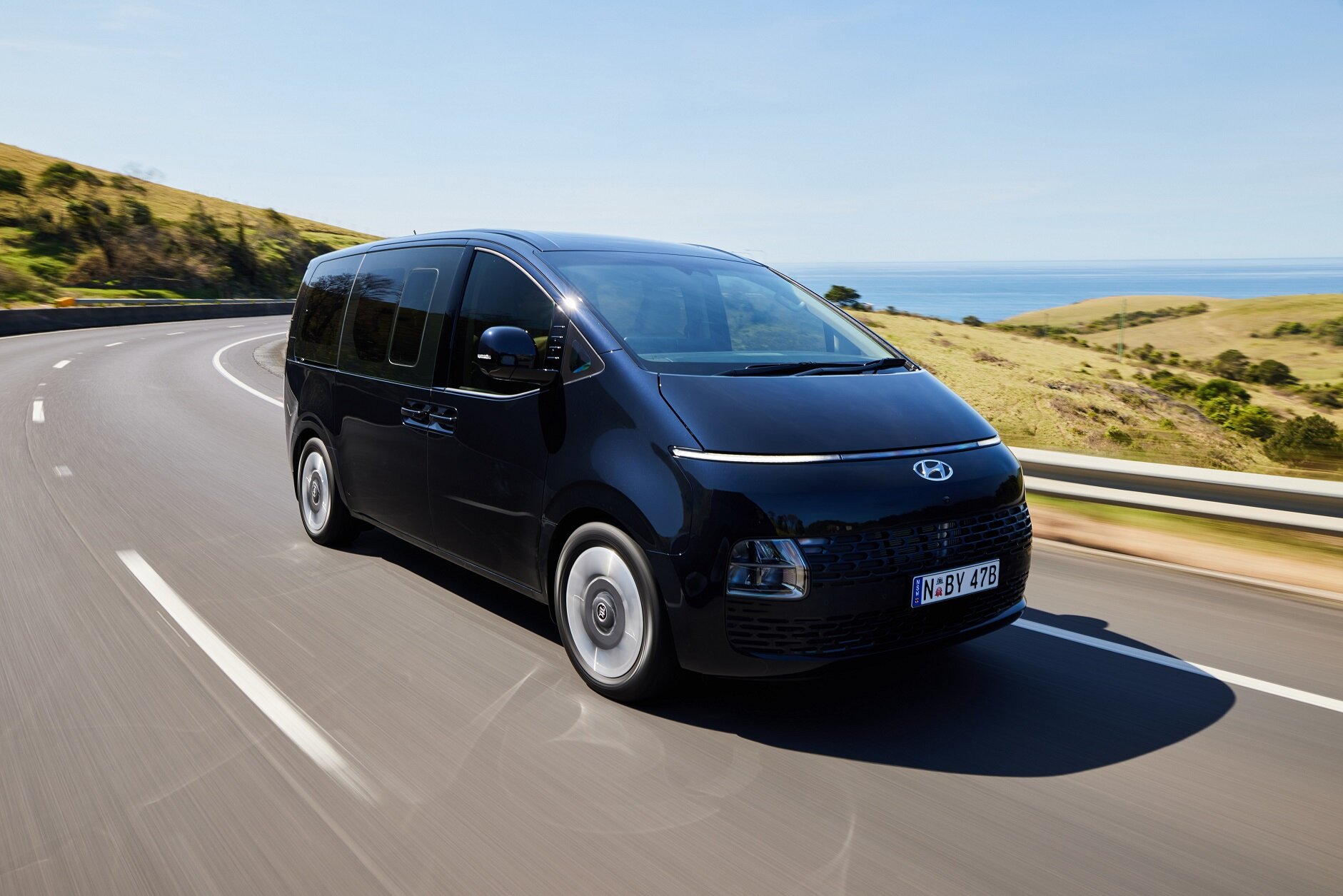







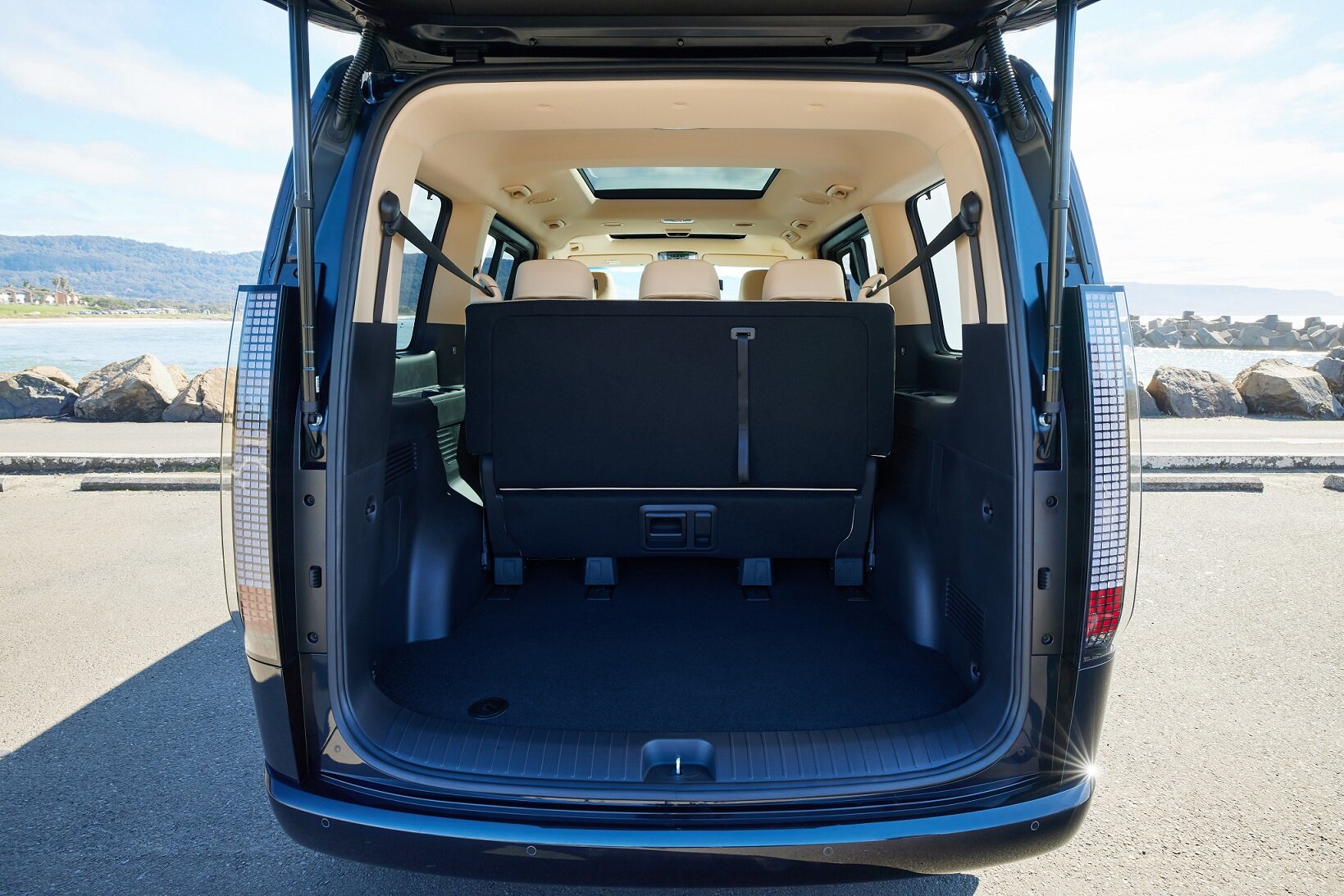

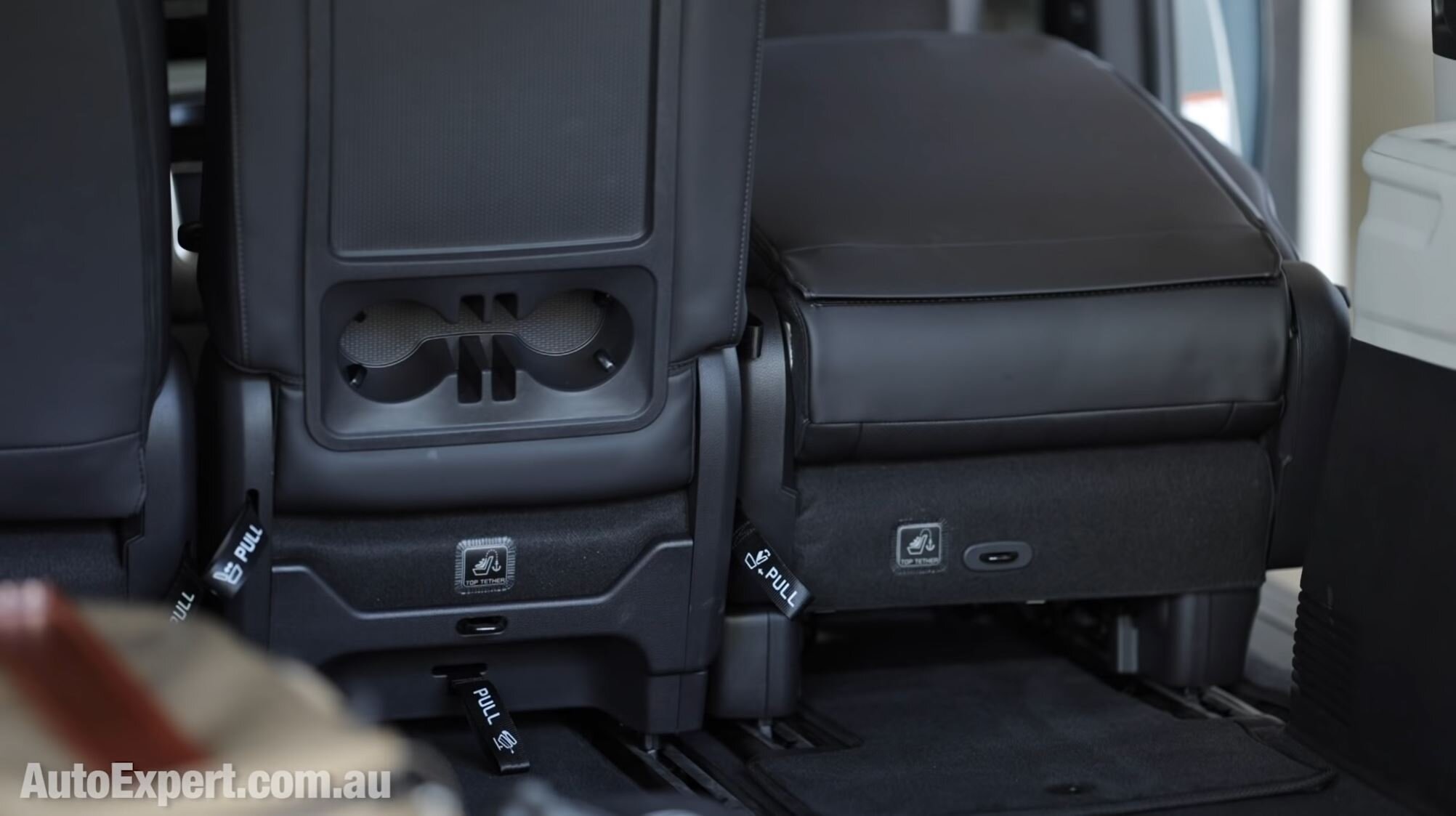

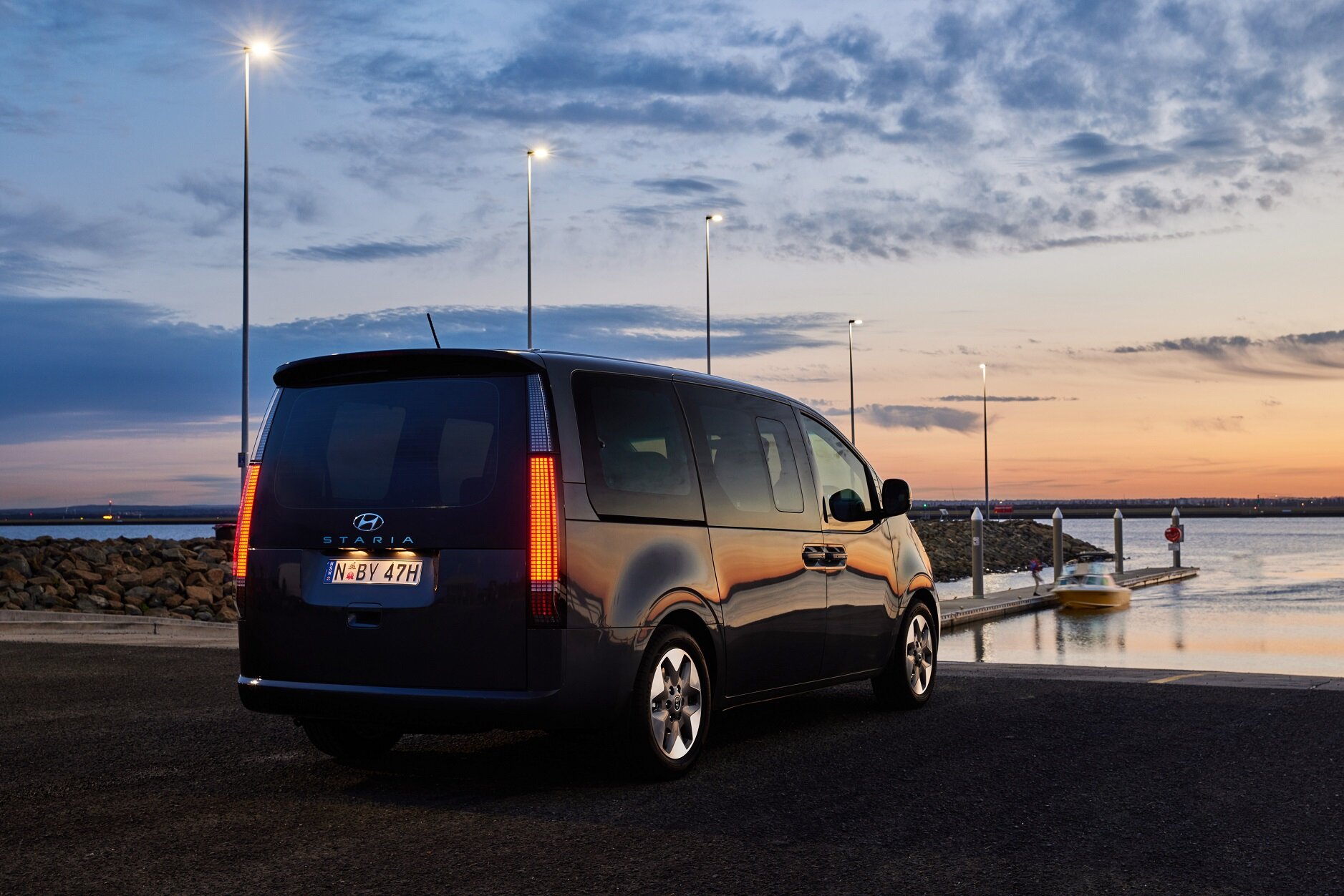




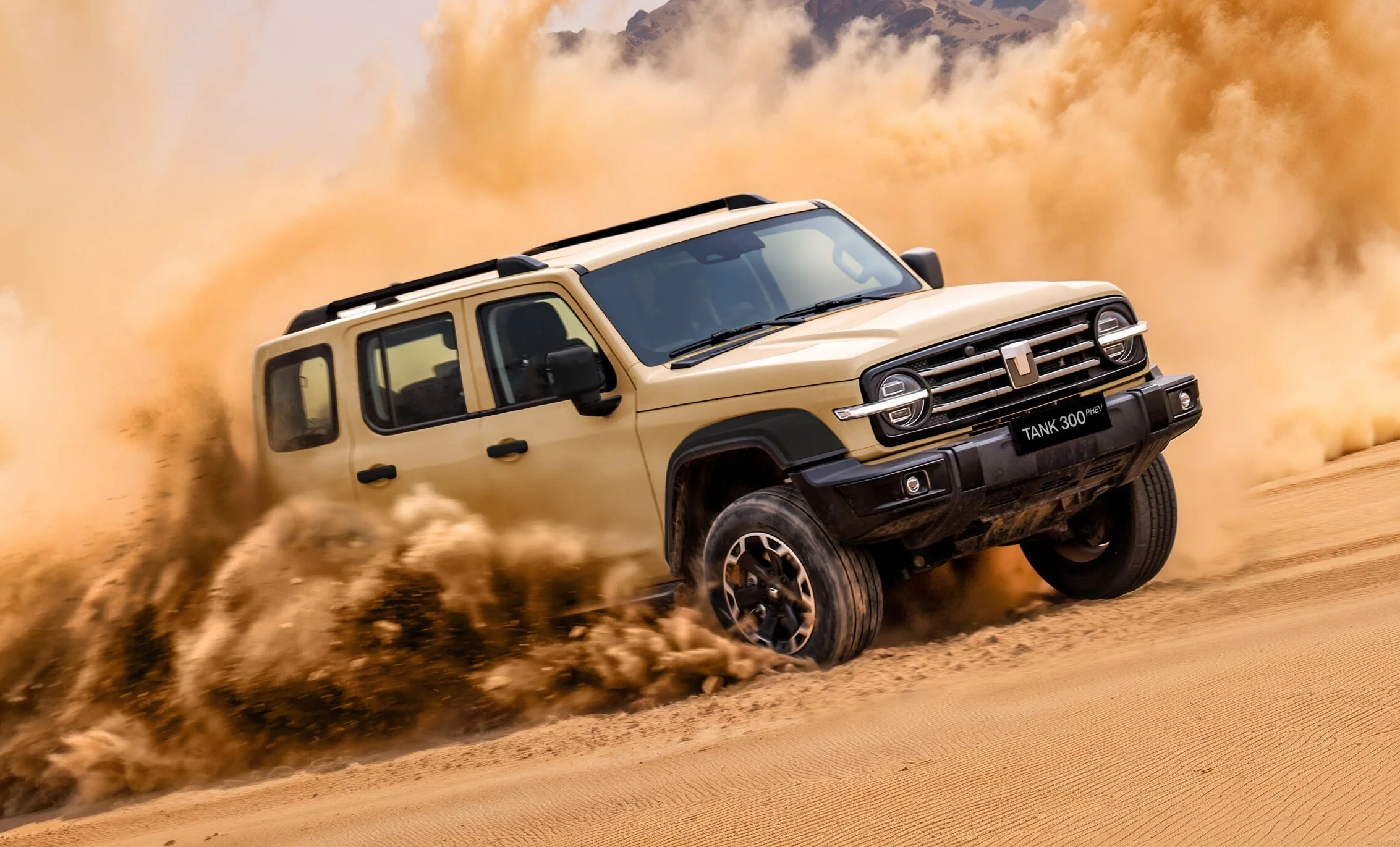


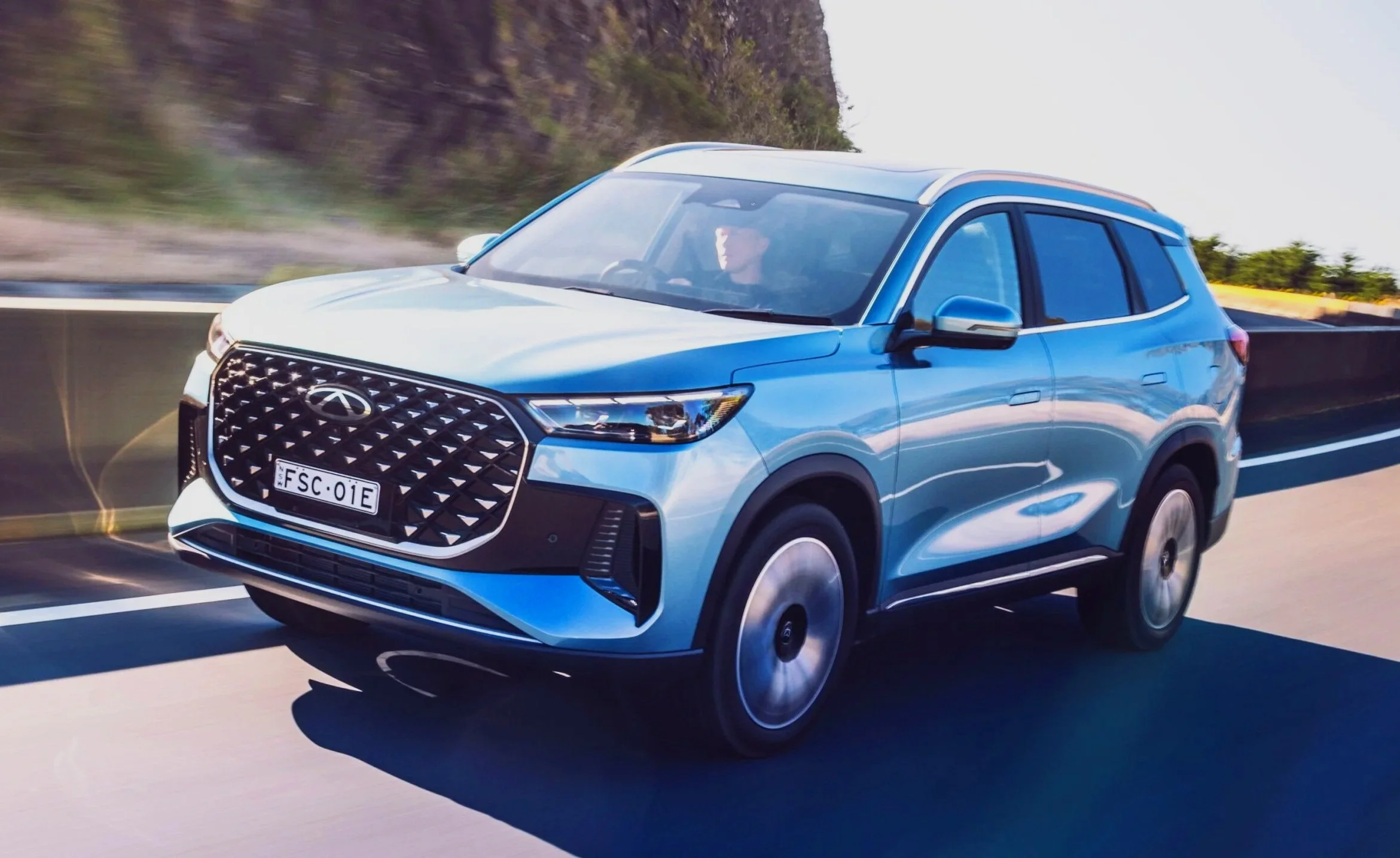
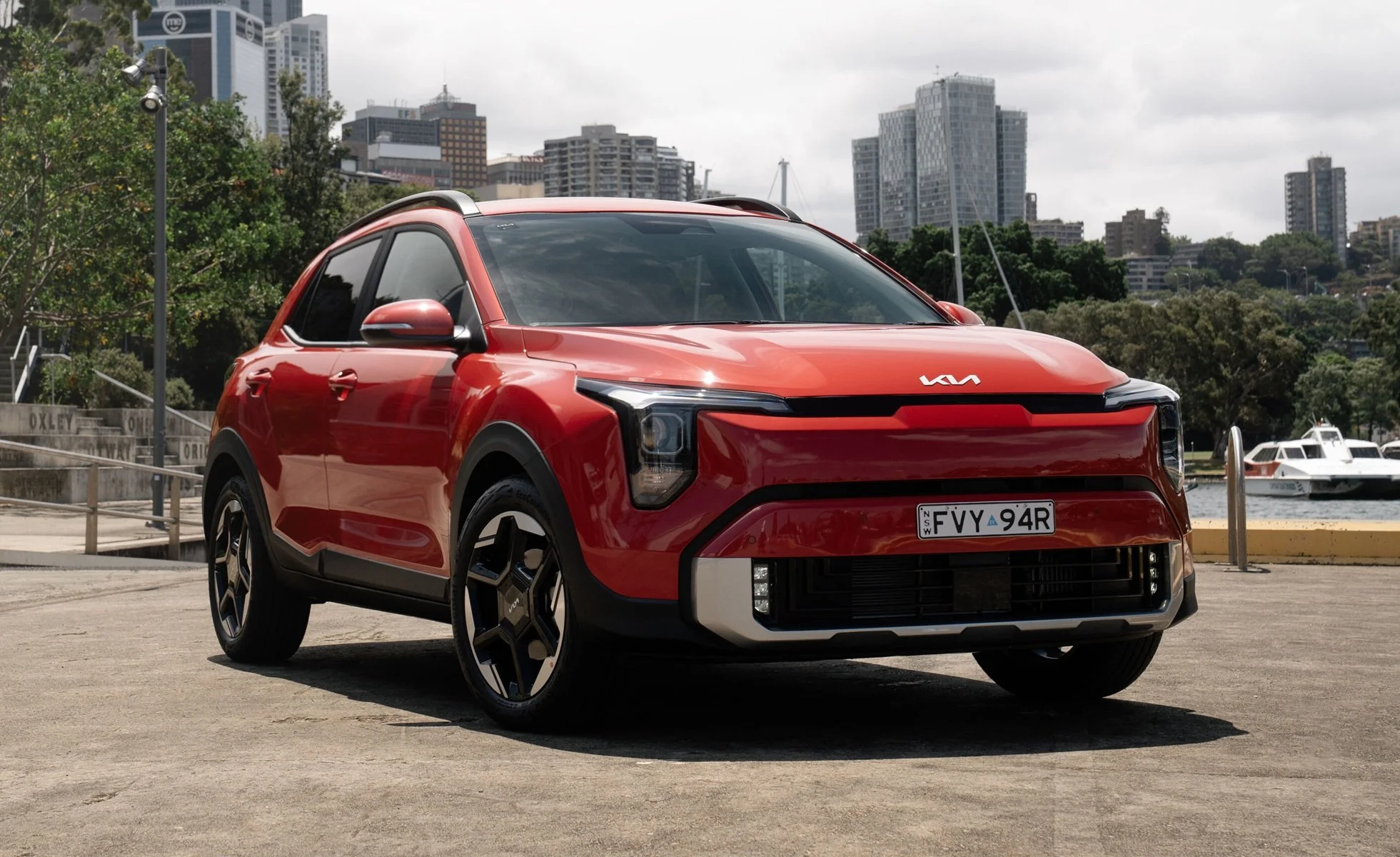

There’s plenty to like about the 7-seat Ford Everest for hardcore off-roading and heavy towing thanks to its big V6 diesel. But is it wise dropping up to $80K on Ford these days?